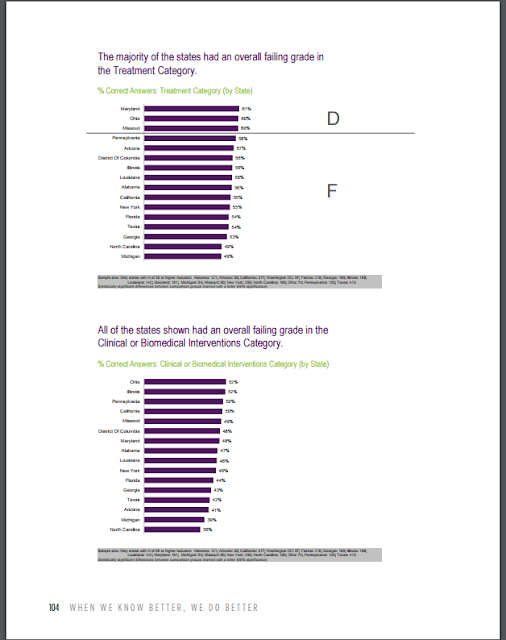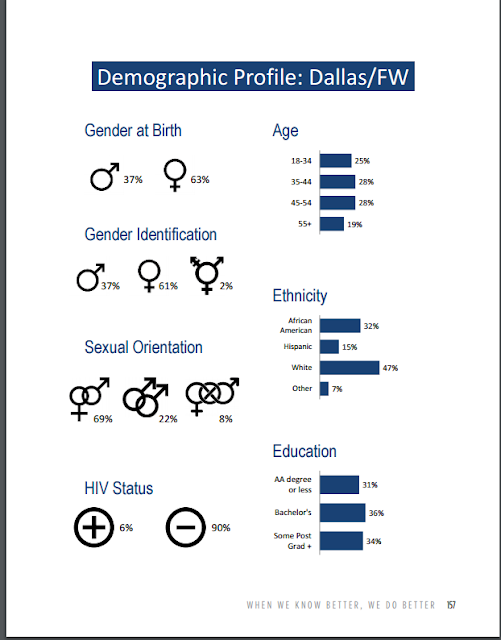The term "People" or "Person of Color" is a dangerous trap for several reasons that I will outline in this post. In my opinion, the first reason that this phrase is problematic, is that it is used out of context on a regular basis. When it is important to say the specific race of a group or individual, folks say POC instead of saying Black or (insert race here) and that is problematic. A great example is last year during the endorsement meeting for The Caucus in Houston, a question was posed with the intention to ask if any Black folks were on the screening committee for the Mayor's race. The well intentioned response from one of the Black board members is that "there were no POC" that screened in that race, we knew they meant Black, but it may have been better if that was stated instead of POC.
Person of color: (plural: people of color, persons of color, sometimes abbreviated POC) is a term used primarily in the United States to describe any person who is not white. The term encompasses all non-white groups, emphasizing common experiences of racism.
When us Black folk refer to ourselves as a POC in a Predominantly White space, it contributes to the
erasure that we fight so hard to rid ourselves of. Might I suggest that when we are talking about issues specific to us as Black folk, we say Black or African American. Think of it on the same
premise of using "I" statements. This erasure is also very real as it pertains to predominantly White spaces like conferences, organizations and even campuses. Netroots' conference last year is a great example of what erasure looks like. Literally, almost every session pertaining to race had the label POC and it came off as, "we know you want issues of race addressed, but we will put you all together in one space and let you hash the issues out on your own." When these scenarios take place, there is a tendency for a group or person to feel oppressed because everyone is clamoring to talk about issues specific to their race, someone gets left out.
I wonder if predominantly White organizations, institutions and etc are doing this on purpose in hopes that we will fight amongst ourselves. Especially when the example of Netroots brings back the memory of having to leave the main space to go to Blackroots during lunch, which was held at a local Phoenix community center and organized by great people like Tia Oso and so many other great friends that I made. The who thing about Blackroots is that Netroots rejected any proposals with the specific intention to center Black voices in a designated space. In doing so, the issues of immigration as it pertains to Black bodies had to be discussed of site, we were erased. How much, and how often is this happening at these events and campuses that portray themselves to be progressive and liberal, which somehow falsely exempts them from being called on their White privilege and racism. Anyway, I ran across a video on Youtube that speaks to this issue, it was posted by this great person who goes by QueerAsCatt in the final days of 2015:
"i’ve long since had issues with how some people, specifically white people, repeatedly misuse the term “People of Color” (aka “POC”). at long last i’m finally putting my frustrations into words in the hope of bringing awareness to these issues.
in the interest of being as brief as possible, in this video i've summarize my issues regarding white people’s usage of this term into two points:
1. treating POC as if they are a homogeneous group of people. ( @00:29 ~ )
2. treating whiteness as if it is the default not only in one's own country, but internationally. ( @4:12 ~ )
obviously when people who consider themselves to be allies to POC make such mistakes the mistakes are honest ones with no ill intent behind them. however, that does not change the fact that mistakes are being made and that these mistakes should be corrected.
if you consider yourself to be an ally to people of color, please watch this video and be open to rethinking your usage of “people of color.”
Let me put it another way, in 2013 Janani wrote a piece for Black Girl Dangerous entitled "What’s Wrong With the Term ‘Person of Color’." In this snippet from the piece, she addresses being non Black, non Indigenous & Non White:
"...As an identifier, ‘person of color’ can be slippery for a lot of politicized, non-Black, non-indigenous, non-White people in the US, for 2 reasons:
1) US/Western imperialism is so widespread that it even imposes its ways of doing racism on the rest of the world, and on people of color. For example, my family is upper caste, and that caste position is partly what enabled our immigration to the US. It also means that we’re lighter-skinned South Asians (read: closer to Aryan British colonizers). Using the term ‘POC’ as my identifier rather than ‘South Asian’ or ‘Desi’ means I never unpack these non-Western racial systems that are also at play.
2) Many of our communities have benefited variously from racism. South Asian communities I’ve been involved in use antiblack racism as one strategy of assimilation. Because as White people have established, the easiest way to shore up your racial supremacy is to be antiblack, displayed in everything from microaggressions to employment discrimination to violence. We know that people of color can be racist towards each other. What I’m saying is that many of us also reap systematic advantages from the racist attitudes and structures that are held by our entire communities.
How do we, as politicized people of color, acknowledge the very limits of the term ‘people of color’ and the way it can mask our actual racial situations? For example, why do we keep using the phrase ‘communities of color’ as targets of police and state violence when we primarily mean Black and Latino folks? What races are we trying to contain in the word ‘brown’? Why are we afraid to point to the specificities of racism? Do we think it will divide us? Do we think we are really not capable of understanding and working from the different ways we experience racism?"
We all should use the term in context and make sure it is relevant to the conversations and settings involved, or you will be contributing to your own erasure. We should also check people when they are using it to silence us, disrupt it, take over the spaces...



























